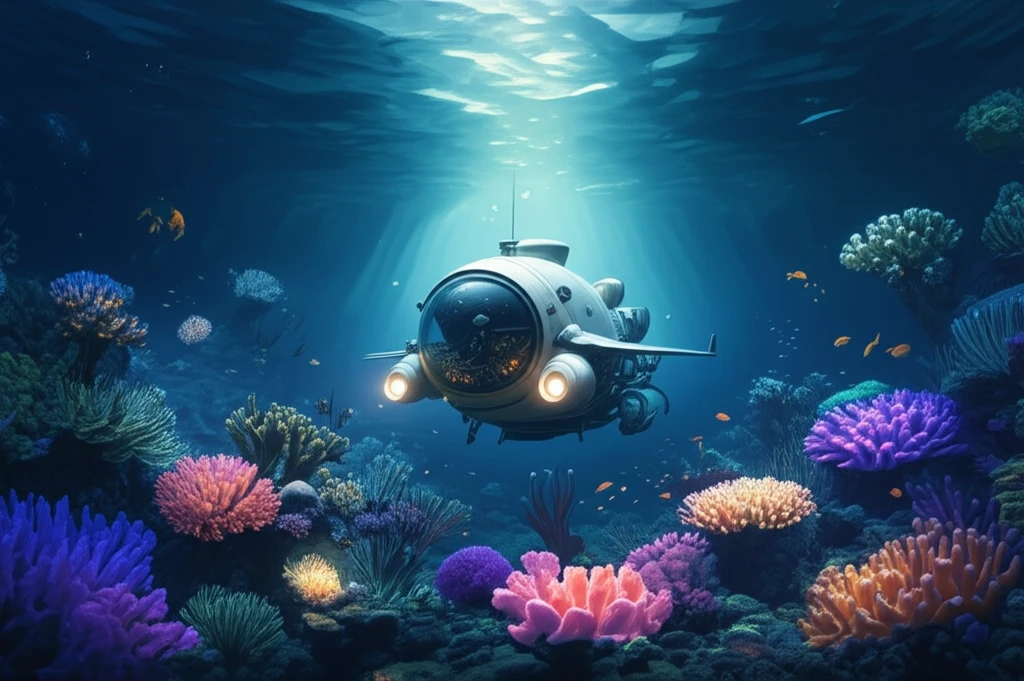
Navigating the Depths: How Ocean Engineering is Shaping Our Future
"Dive into the groundbreaking innovations and ethical considerations driving the next wave of ocean exploration and technology."
The ocean, a realm of immense mystery and untapped potential, is rapidly becoming a focal point for technological innovation and scientific exploration. Ocean engineering, a multidisciplinary field encompassing electrical, mechanical, civil, and chemical engineering principles, is at the forefront of this oceanic revolution. From developing advanced underwater robotics to harnessing the power of ocean waves, ocean engineers are creating solutions to some of the world's most pressing challenges.
This article delves into the groundbreaking research and developments highlighted in the IEEE Journal of Oceanic Engineering, Vol. 43, offering a glimpse into the diverse and impactful projects shaping our relationship with the marine environment. As we venture deeper into the ocean's depths, ethical considerations and sustainable practices become paramount. How do we balance the pursuit of knowledge and resources with the need to protect this fragile ecosystem? Let's explore.
Whether you're a seasoned engineer, a budding scientist, or simply someone captivated by the ocean's allure, this exploration of ocean engineering's latest innovations promises to be an enlightening journey. Join us as we navigate the currents of technological advancement and ethical responsibility in this vital field.
Autonomous Underwater Vehicles (AUVs): The Future of Ocean Exploration

Autonomous Underwater Vehicles (AUVs) are revolutionizing how we explore and interact with the ocean. These self-propelled, unmanned robots can perform a wide range of tasks, from mapping the seafloor and monitoring marine life to inspecting underwater infrastructure and searching for lost objects. The IEEE Journal of Oceanic Engineering showcases cutting-edge research in AUV design, navigation, and control.
- Seabed inspection for infrastructure maintenance
- Oceanographic surveys for environmental monitoring
- Search and rescue operations in challenging underwater terrains
The Ethical Imperative
As ocean engineering continues to advance, ethical considerations must remain at the forefront of our endeavors. We have a responsibility to develop and deploy ocean technologies in a manner that minimizes environmental impact, respects marine ecosystems, and promotes sustainable practices. By embracing a holistic approach that integrates technological innovation with ethical responsibility, we can unlock the ocean's vast potential while safeguarding its precious resources for future generations. The journey into the ocean's depths requires not only ingenuity but also a deep commitment to stewardship and sustainability.
